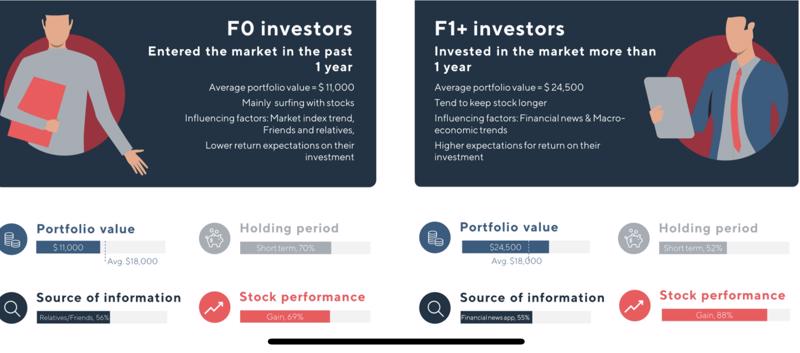Retail investors driving up stock market
Activity in the past has been predominantly driven by foreign investors, but the stock market boom this year has been fueled more by domestic work from home (WHF) investors, according to the latest report from Dynam Capital.

The Vietnamese Retail Investors Study 2021, which is the first report of its kind to be published, engaged with 425 participants mostly from Hanoi and Ho Chi Minh City during the month of August and provides a timely take on the characteristics of these “newbie” retail investors.
Dynam Capital, the investment management firm that manages Vietnam Holding in Vietnam, released the report, which features key findings from its inaugural survey on the sentiment and behavior of retail investors.
The survey was carried out by Indochina Research Limited, an independent market research firm. It highlights a number of insights into the changing nature of Vietnam’s retail investment market given rapid digitalization, working from home (WFH), and other mega trends spurred by the pandemic, including how retail investors have emerged as a new decisive buying force in Vietnam’s market.
The survey’s report makes a unique distinction, citing half of the participants as F0 investors: those who entered the market in the past year, have an average portfolio value of $11,000, and mainly surf stocks based on market trends and influences from friends and relatives. The other half are F1+ investors, those who have invested in the market for more than a year, have an average portfolio size of $24,500, and tend to keep stocks longer based on financial news and macro trends.
The survey also found that 96 per cent of all participants trade through online trading apps, with four out of ten using more than one app to optimize their trading experience and gains.
Mr. Craig Martin, Chairman of Dynam Capital, said the report also shows that the retail investors of today consider equity investment more as a source of extra income, with the majority of those surveyed actively selecting stocks. “The growth in the stock market in Vietnam has been meteoric: the market value of publicly-traded companies is now close to $300 billion, up from $2 billion in 2006 when investment funds, such as Vietnam Holding (VNH), commenced their activities,” he said. “The stock market has created additional wealth and income for some of the new domestic investors surveyed, and longer-term investors, such as those who invest in VNH, have also seen compound average returns of 15 per cent per annum over the last decade.”
Listed on the London Stock Exchange, VNH is a closed-end fund focused on companies in Vietnam that demonstrate a commitment to environmental, social, and governance (ESG) principles. Its August 2021 Investment Manager’s report discussed how the fund’s overweight in selected brokerage firms was a positive contributor given domestic retail investors’ increased activity, with average trading volumes reaching $1 billion per day; five times the levels in 2019. To put that into context, VNH’s 15th anniversary this year coincided with an extraordinary escalation in domestic investors replacing foreigners and causing the main bourse, the Ho Chi Minh Stock Exchange (HoSE), to halt trading for the first time in its and the fund’s history. There are now an estimated 4 million retail trading accounts in Vietnam, which is more than in the UK.
In terms of performance and outlook, the survey’s report found that 79 per cent of investor respondents recorded strong gains in the past year and that 59 per cent of them are optimistic about the market going up more than 5 per cent in the closing months of 2021 despite the Delta variant’s dent on the economy. This suggests confidence among retail investors that the vaccination rollout will pick up pace and have a positive impact on the stock market.







